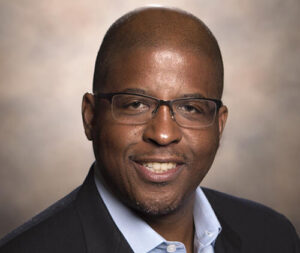
Phillip W. Graham, Dr.P.H.
Director, Center for Behavioral Health Epidemiology, Implementation, and Evaluation Research, and Principal Scientist, RTI International

Phillip W. Graham, Dr.P.H.
Director, Center for Behavioral Health Epidemiology, Implementation, and Evaluation Research, and Principal Scientist, RTI International
“Culturally Responsive Healing Practices for Boys and Young Men of Color”
Abstract: This study presents a developmental evaluation exploring how grantees integrated the Robert Wood Johnson-funded Forward Promise Initiative’s Heal, Grow, Thrive (HGT) Framework and the dehumanization conceptual model into their existing programs. The evaluation identified and codified practices that organizations use to disrupt dehumanization, particularly among boys and young men of color (BYMOC). The findings revealed nine practices across three categories—new narratives, culturally responsive programming, and systems reform—that organizations used to disrupt dehumanization. These practices, grounded in both the lived experiences of BYMOC and robust research, provide a foundation for new hypotheses in the field, suggesting areas for future research on aligning specific practices with types of dehumanization as proposed by the NPO model.
Co-Sponsored with the Edna Bennett Pierce Prevention Research Center
Dr. Graham is also presenting the BENNETT LECTURE
Thursday, October 3, 2024
4:00 p.m. – 5:30 p.m., Bennett Pierce Living Center, 110 Henderson Building
“Conducting Rigorous Community-level Research: The Power of Possibilities”
Wednesday, October 2, 2024
4:15 p.m., The Living Center, 110 Henderson Building
Reception to Follow

Catherine Tamis-LeMonda, Ph.D.
Professor of Applied Psychology
NYU Steinhardt

Catherine Tamis-LeMonda, Ph.D.
Professor of Applied Psychology
NYU Steinhardt
Abstract: Infancy is a remarkable time. Each emerging skill generates perceptual and social feedback vital to learning. And although researchers of infancy each zero in on a specific domain of development, our work is grounded in core principles of learning. In this talk, Tamis-LaMonda spotlights fundamental tenets of developmental science and the need for researchers to surmount soundbites, theoretical divides, methodological assumptions, and the narrow approaches to culture that persist in the field. Tamis-LeMonda illustrates with examples of infant-parent everyday home activities in samples from different socioeconomic status households, language communities, and global sites. She shows that infant learning is the product of immense amounts of time-distributed, varied practice; that cognition is grounded in action; and that venturing beyond the lab and expanding inquiry to diverse cultural communities offers unique insights into learning processes.
Thursday, October 10, 2024
The 2024-2025 Child Study Center’s Lois Bloom Lecture
4:15 p.m., Memorial Lounge, 107 Pasquerilla Spiritual Center
Light reception to follow
2024 Child Maltreatment Solutions Network Conference
“Biological Embedding of Caregiving Adversity”
Co-sponsored by the Child Study Center
Friday, November 15, 2024
8:30 a.m. – 5:30 p.m., HUB-Robeson Center, 129
Penn State Open Scholarship Initiative Event
“Better Data Practices for Research: A Workshop”
Presented by the Penn State Open Scholarship Initiative, this workshop was open to all researchers, especially graduate students and postdoctoral researchers. The workshop used hands-on activities to introduce practical approaches for implementing better data practices across the research lifecycle. Topics included directory structures and file naming conventions, copyright considerations for research data and code, and documentation formats such as data dictionaries, metadata standards, and README files.
Co-sponsored by the Child Study Center and Institute for Computational and Data Sciences
Thursday, March 27, 2025
8:30 a.m. – 3:00 p.m.
Dewey Room, Pattee Library, University Park

Ivan Oransky, M.D.
Co-founder, Retraction Watch
Editor-in-chief, The Transmitter
Distinguished journalist in residence, Arthur Carter Journalism Institute
New York University

Ivan Oransky, M.D.
Co-founder, Retraction Watch
Editor-in-chief, The Transmitter
Distinguished journalist in residence, Arthur Carter Journalism Institute
New York University
Penn State Open Scholarship Initiative Invited Speaker Presentation
“Retractions: On the Rise, But Not Enough“
The Penn State Open Scholarship Initiative in association with the CSC’s Open Data and Developmental Science (ODDS) initiative will host an invited speaker presentation by Ivan Oransky, M.D., co-founder of the Retraction Watch blog. Read more about this event here.
Co-sponsored by Penn State University Libraries and the Child Study Center
Monday, April 21, 2025
3:00 p.m.
Foster Auditorium, Paterno Library